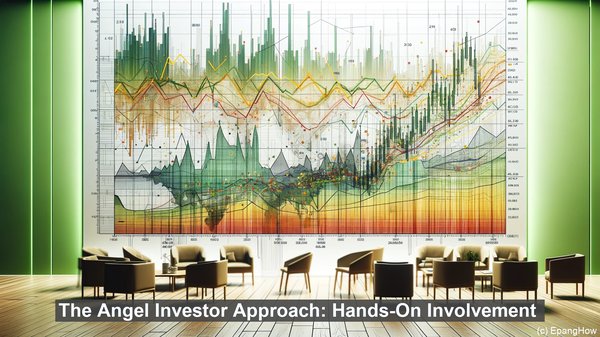Introduction: The Dynamic Startup Landscape
Hello everyone, and welcome to today’s article! The startup landscape is dynamic, with countless innovative ideas emerging every day. However, transforming these ideas into successful businesses requires more than just creativity and passion. Funding is a critical aspect, and this is where venture capitalists and angel investors come into play.
Venture Capitalists: Strategic Investors with Deep Pockets
Venture capitalists, often referred to as VCs, are institutional investors who manage funds dedicated to startup investments. These funds are typically sourced from various entities, including pension funds, endowments, and wealthy individuals. What sets VCs apart is their substantial financial firepower. With millions, and sometimes even billions, at their disposal, they can make significant investments in promising startups.
The VC Approach: Diligence and Portfolio Management
When a venture capitalist considers investing in a startup, they conduct extensive due diligence. This involves assessing the market potential, evaluating the team’s capabilities, and scrutinizing the business model. VCs often take an active role in the companies they invest in, providing guidance, connections, and expertise. Additionally, VCs typically build a diverse portfolio, spreading their investments across various industries and stages of growth to mitigate risk.

Angel Investors: Individual Backers with a Passion for Startups
Unlike venture capitalists, angel investors are individuals who invest their personal funds in startups. These individuals are often successful entrepreneurs or industry experts who not only provide capital but also valuable mentorship. Angel investors are known for their willingness to take on higher risks, as they often invest in very early-stage companies with unproven business models.

The Angel Investor Approach: Hands-On Involvement
Angel investors are not just passive investors. They are actively involved in the companies they back, leveraging their experience and networks to support the startup’s growth. This can include everything from strategic guidance to making key introductions. Angel investors also tend to have a more personal relationship with the founders, often acting as mentors and advisors.
The Investment Horizon: Short-Term vs. Long-Term
Another key difference between venture capitalists and angel investors is their investment horizon. VCs typically have a longer-term outlook, with an average investment period of 5-7 years. They understand that building a successful company takes time and are willing to wait for the returns. On the other hand, angel investors may have a shorter investment horizon, often looking to exit within a few years.
The Funding Round: Seed vs. Series
In the startup funding journey, different stages require different types of investors. Angel investors often participate in the seed round, which is the earliest stage of funding. This is when the startup is just getting off the ground and needs capital to develop the initial product or service. Venture capitalists, on the other hand, typically come in at later stages, such as the Series A or B rounds, when the startup has already demonstrated some traction and is ready to scale.
